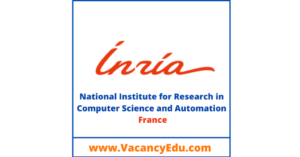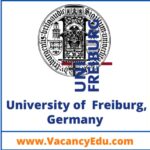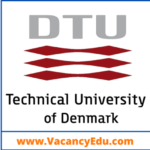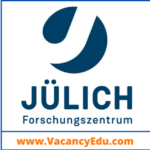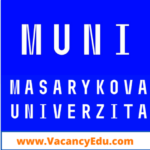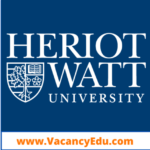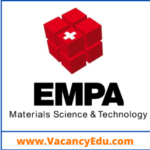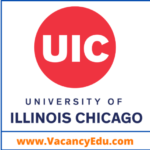Inria, France invites online Application for various Postdoctoral Fellowship in their different Departments. We are providing a list of Postdoc Fellowship positions available at Inria, France.
Eligible candidate may Apply as soon as possible.
(01) Postdoctoral Fellowship Position
Postdoc Fellowship Position summary/title: Post-Doctoral Research Visit F/M Computational design of next-generation optical metasurfaces
Atlantis is a joint project-team between Inria and the Jean-Alexandre Dieudonné Mathematics Laboratory at Université Côte d’Azur. The team gathers applied mathematicians and computational scientists who are collaboratively undertaking research activities aiming at the design, analysis, development and application of advanced numerical methods for solving systems of partial differential equations (PDEs) modelling nanoscale light-matter interaction problems. In this context, the team is developing the DIOGENeS [https://diogenes.inria.fr/] software suite, which implements several Discontinuous Galerkin (DG) type methods tailored to the systems of time- and frequency-domain Maxwell equations possibly coupled to differential equations modeling the behaviour of propagation media at optical frequencies. DIOGENeS also includes a component dedicated to the optimization of geometrical characteristics of nanostructures driven by some performance objective in the contex of inverse design strategies of nanophotonic setups. DIOGENeS is a unique numerical framework leveraging the capabilities of DG techniques for the simulation of multiscale problems relevant to nanophotonics and nanoplasmonics.
Deadline : 2026-06-30
(02) Postdoctoral Fellowship Position
Postdoc summary/title: Post-Doctoral Research Visit F/M Personalized patient follow-up
This project is based on a collaboration between Scool and a medical team at Inserm/CHU de Lille that have been active for 5 years now.
The scientific goal of this collaboration is to investigate the exploitation of data to improve patient follow-up after surgery. We model this problem as a sequential decision making under uncertainty problem.
This collaboration has already produced interesting results, in the form of a website, presentations in conference, and publications in top machine learning conferences, and top medicine journals.
This collaboration involves about 10 people: data engineer, PhD student, post-doc, researchers, professors.
Deadline : 2025-12-31
Looking for more Postdoctoral Positions Click Here
(03) Postdoctoral Fellowship Position
Postdoc Fellowship Position summary/title: Post-Doctoral Research Visit F/M privacy preserving federated learning with applications in medical domains
This post-doctoral position will be supported by the HE Trumpet project, the HE Flute project and/or the PEPR IA Redeem project. While this position will be in the MAGNET team in Lille, we will collaborate with the several European project partners.
While AI techniques are becoming ever more powerful, there is a growing concern about potential risks and abuses. As a result, there has been an increasing interest in research directions such as privacy-preserving machine learning, explainable machine learning, fairness and data protection legislation.
Privacy-preserving machine learning aims at learning (and publishing or applying) a model from data while the data is not revealed. Notions such as (local) differential privacy and its generalizations allow to bound the amount of information revealed.
The MAGNET team is involved inthe related TRUMPET, FLUTE and REDEEM projects, and is looking for team members who can in close collaboration with other team members and national & international partners contribute to one or more of these projects. All of these projects aim at researching and prototyping algoirhtms for secure, privacy-preserving federated learning in settings with potentially malicious participants. The TRUMPET and FLUTE projects focus on applications in the field of oncology, while the REDEEM project has no a priori fixed application domain.
Deadline : 2025-12-31
(04) Postdoctoral Fellowship Position
Postdoc Fellowship Position summary/title: Post-Doctoral Research Visit F/M Postdoctoral position in Quantum Information Theory
The research project will explore quantum protocols based on the concept of quantum nonlocality and quantum networks (see arXiv:2104.10700). A non-exhaustive list of potential projects is:
- Methods for characterizing quantum correlations beyond the Bell scenario:
- mathematical foundation of these methods (C* algebras, noncommutative polynomial optimization): see e.g. arXiv:2210.09065, arXiv:2212.11299, arXiv:2301.12513
- improve/find new algorithms for characterizing these correlations
- numerical developpement of these algorithms, see e.g. arXiv:2211.04483
- Understanding the foundational implications of quantum correlations in networks, see e.g. arXiv:2101.10873 and arXiv:2105.09381
- Develop the applications of network nonlocality to certification protocols, such as
- randomness generation: arXiv:2209.09921
- self testing of measurements and states: arXiv:1807.04956, arXiv:2201.05032
- Adapt existing protocols for their experimental implementation
- Develop practical benchmarks of the concept of ‘Genuine Multipartite Nonlocality’ introduced in arXiv:2105.09381
- Develop SDP relaxations for condensed matter problems, see e.g. arXiv:2212.03014, arXiv:2310.05844, arXiv:2311.18707, arXiv:2311.18706
- Explore the limits of quantum distributed computing, see e.g. arXiv:1810.10838, arXiv:0903.113
Any other suggested research project in quantum information theory can be discussed (both from the physics, the computer science or the mathematical viewpoint).
Deadline : 2025-12-31
(05) Postdoctoral Fellowship Position
Postdoc Fellowship Position summary/title: Post-Doctoral Research Visit F/M Bridging the gap between combinatorial proof theory and subatomic proof theory
The PARTOUT team is based at the Inria research center Saclay which located at the heart of the Paris-Saclay scientific and technological excellence cluster. It is closely connected to the Université Paris-Saclay and the Institut Polytechnique de Paris, and it has over 600 scientists working in 37 project teams.
In 2019, Inria and University College London (UCL) signed an agreement to strengthen and structure the impact of scientific collaborations between the Institute and its London partners, first and foremost UCL, particularly in the fields of artificial intelligence, machine learning and statistics, as well as all scientific fields of interest to Inria.
Deadline : 2025-10-31
Click here for “Postdoc Application Cover Letter Template”
Click here to know “How to write a Postdoc Job Application or Email”
(06) Postdoctoral Fellowship Position
Postdoc Fellowship Position summary/title: Post-Doctoral Research Visit F/M Generative AI for Cross-Field Translation of Brain FLAIR MRI: Enhancing Diagnostic Quality from Standard to Ultra-High Field Strengths
As part of a public collaboration with the Institute of Radiology of the University of São Paulo School of Medicine, the goal is to develop a software based on generative AI to generate 7 Tesla (T) magnetic resonance imaging (MRI) images from corresponding images acquired at standard clinical magnetic field strengths (e.g., 1.5 T or 3 T), to improve spatial resolution of MR images, their quality (contrast and signal-to-noise ratio), and ultimately their diagnostic capability.
Several stays in São Paulo will be planned for this position to collaborate with the partner team (Dr. Fabiola Macruz) at the Radiology Institute from the Clinics Hospital of the University of São Paulo Medical School. Travel expenses will be covered within the applicable scale.
Deadline : 2025-10-31
(07) Postdoctoral Fellowship Position
Postdoc Fellowship Position summary/title: Post-Doctoral Research Visit F/M Inference of a demo-genetic model for sustainable plant resistance
Crop protection often remains dependent on chemical pesticides, which are both harmful for the environment and human health. Resistant crops are an agroecological alternative to pesticides, but their extensive use may lead to the emergence/selection of virulent pathogens and resistance breakdown. Devising deployment strategies of resistant crops that are both efficient, i.e. that reduce crop damages, and durable, i.e. that limit the virulent pathogen populations, is hence a major issue.
The postdoctoral fellow will tackle this issue by means of a demo-genetic model, tailored for a specific pathosystem, the phoma stem canker of oilseed rape caused by fungus Leptosphaeria maculans. The emergence and development of virulent pathogens may vary according to the genetic determinisms of virulence (molecular mechanisms responsible for the transition to virulence, epistatic interactions, fitness costs), which are studied by other partners of the ENDURANCE project.
Deadline : 2025-09-30
(08) Postdoctoral Fellowship Position
Postdoc Fellowship Position summary/title: Post-Doctoral Research Visit F/M Postdoctoral Position – Neural correlates of social interaction and its impact on performance in middle childhood
Social interaction among children is crucial for the proper development of social and cognitive skills, as well as for proper brain development. However, the topic of how children acquire the ability to form social bonds with their peers remains understudied and therefore poorly understood. One possibility for exploring this question is to simultaneously measure the brain activity of two children during social interaction, a technique that is called hyperscanning. The inter-brain synchrony data elicited in this way can then be related to data on children’s embodied interaction with one another, data on the strength of their social bonds, and data on their performance on a collaborative task. Analyzing and interpreting the results of these experiments,,using newer machine learning approaches, will be the job of the research engineers and postdocs hired for this position.
Deadline : 2025-09-30
Click here to know “How to Write an Effective Cover Letter”
(09) Postdoctoral Fellowship Position
Postdoc Fellowship Position summary/title: Post-Doctoral Research Visit F/M Deciphering conformational dynamics in macromolecular complexes
This postdoc position is funded for two years by the grant from Programme Inria Quadrant (PIQ). The main goal is to develop a graph neural network architecture to investigate conformational dynamics of macromolecular complexes. The Postdoc researcher will be in connection with Yasaman Karami (Chargee de recherche, Inria) with expertise in proteins conformational dynamics and allostery, and will be hosted in the Delta team within the Inria center at the Universite de Lorraine. Our team consists of two permanent researchers with several PhD and postdoc members, and is expected to grow by hiring new members. It provides a multidisciplinary and international environment, and benefits from experts in structural bioinformatics, as well as in computer science and deep learning. Our main goal is to develop deep learning models, to study, and predict protein structure, interactions, function and to further design synthetic molecules. The team has access to computational resources, including efficient GPUs and CPUs, from different cluster centers including Grid5000, Jean Zay, etc.
Deadline : 2025-09-30
Connect with Us for Latest Job updates
(10) Postdoctoral Fellowship Position
Postdoc Fellowship Position summary/title: Post-Doctoral Research Visit F/M Post-Doctoral Research F/M embodied conversational agents with adaptive personality
Within the framework of a large international project on adaptive personality in conversational agents,, Inria is responsible for investigating the impact of interpersonal factors on the display of personality, in people and in conversational agents that interact with people. This involves collecting a corpus of dialogues by groups of 4 people, whose personality traits will have been assessed, and who will work on a series of 3 tasks. (to match the corpora collected in other languages). The corpus will then be annotated and analyzed for the impact of various psychological, linguistic, and interpersonal factors such as the strength of social bonds among the interactants, the personality traits of the different members of the group, the nature of the task, and so forth, on the verbal and nonverbal display of personality. Results will then be applied to the implementation of embodied conversational agents that represent the results, and the agents will be tested in interaction with people to assess the impact of “interpersonality” on the success of human-machine interaction.
Deadline : 2025-09-30
(11) Postdoctoral Fellowship Position
Postdoc Fellowship Position summary/title: Post-Doctoral Research Visit F/M Tiny Digital Twins: MLops, Embedded Neural Networks and Wireless Communication Compression
This position is part of the postdoctoral program offered by Inria’s International Relations Department. The recruited postdoc is expected to spend one part of their time at Inria (on the Paris-Saclay University campus), and another part at Freie Universität Berlin (within the Inria Berlin initiative, see https://berlin.inria.fr/), working between two teams that have a strong collaboration in the field of embedded AI (see below).
Deadline : 2025-09-30
Polite Follow-Up Email to Professor : When and How You should Write
(12) Postdoctoral Fellowship Position
Postdoc Fellowship Position summary/title: Post-Doctorant F/H Preuves de programmes flottants sur GPU
L’objectif est de mener une recherche sur les garanties que l’on peut obtenir lorsque des programmes flottants sont exécutés sur des GPUs.
Des déplacements en conférence sont prévus, les frais de déplacements seront pris en charge dans la limite du barème en vigueur.
Deadline : 2025-09-30
(13) Postdoctoral Fellowship Position
Postdoc Fellowship Position summary/title: Post-Doctoral Research Visit F/M Event-based unsupervised waveform learning for physiological signals
The postdoc will take place in Inria Saclay, in the MIND team. This is a large team working focused on mathematical methods for statistical modeling of brain function using neuroimaging data (fMRI, MEG, EEG). Particular topics of interest include machine learning techniques, numerical and parallel optimization, applications to human cognitive neuroscience, event detection, and scientific software development. A particular emphasis is put on interdisciplinary projects.
Deadline : 2025-09-30
(14) Postdoctoral Fellowship Position
Postdoc Fellowship Position summary/title: Post-Doctoral Research Visit F/M Resource allocation and scheduling for data stream processing in shared Fog environments
The goal of this postdoc project is to investigate how to optimize resource and task allocation when deploying data streaming processing applications in the Fog. In particular, we want to investigate new optimization metrics and objectives when deploying streaming processing applications in the Fog, including latency, throughput, and maximum sustainable throughput. Accordingly, we will develop a new scheduling framework that relies, among others, on Machine Learning/Deep Learning models to decide on resource allocation and operator placement at runtime (based on the collected data and given the cost model of redeployment and process migration). The proposed framework will be integrated in one of state-of the art data stream engines such as Flick [6], Storm [7] or Spark [8] and evaluated at large-scale using syntactic applications and real-world stream data application.
Deadline : 2025-09-28
(15) Postdoctoral Fellowship Position
Postdoc Fellowship Position summary/title: Post-Doctoral Research Visit F/M Distributed Machine Learning at the Network Edge
The position is in the framework of dAIEDGE—A network of excellence for distributed, trustworthy, efficient and scalable AI at the Edge—funded by the European Union.
The vision of the dAIEDGE Network of Excellence is to strengthen and support the development of the dynamic European edge AI ecosystem under the umbrella of the European AI Lighthouse and to sustain the advanced research and innovation of distributed AI at the edge as essential digital, enabling, and emerging technology in an extensive range of industrial sectors.
Deadline : 2025-09-13
(16) Postdoctoral Fellowship Position
Postdoc Fellowship Position summary/title: Post-Doctoral Research Visit F/M Cooperative Inference Strategies
In an IDN, models could be jointly trained on local datasets using federated learning algorithms [KMA+21]. We will study how the selected inference delivery strategy may require changes to such algorithms to consider the statistical heterogeneity induced by the delivery strategy itself. For example,
nodes with more sophisticated models will receive inference requests for difficult samples from nodes with simpler and less accurate models, leading to a change in the data distribution seen at inference with respect to that of the local dataset. Some preliminary results about the training for early-exit
networks in this context are in [KSR+24].
Deadline : 2025-09-13
Top 25 Free Statistical Analysis Software 2024
(17) Postdoctoral Fellowship Position
Postdoc Fellowship Position summary/title: Post-Doctoral Research Visit F/M Solving Convex Optimization Problems in Nonlinear Predictive Control Based on Fast Quadratic Optimization
Apply an algorithm developed by Valmorbida & Hovd for solving quadratic optimization problems to differentiable nonlinear optimization problems.
Apply this same algorithm developed by Valmorbida & Hovd for the resolution of relaxations of linear optimization problems.
Develop, following the same principles as for the QP algorithm, a method for solving Second Order Cone problems.
Produce a quadratic optimization package, with code developed in C/C++, its documentation and distribute it online.
Deadline : 2025-08-31
(18) Postdoctoral Fellowship Position
Postdoc Fellowship Position summary/title: Post-Doctoral Research Visit F/M Single-cell modeling of biochemical processes with fluorescence microscopy data collected from microfluidic chips with ring-shape channels
Deadline : 2025-08-31
(19) Postdoctoral Fellowship Position
Postdoc Fellowship Position summary/title: Post-Doctoral Research Visit F/M Post-Doctoral Research Visit F/M Self-Tuning Algorithms for Hyperparameter-Free Optimization
This post-doctoral position is part of the Inria-funded exploratory project HYPE (HYPErparameter-Free Optimization Algorithms by Online Self-Tuning). This work will be carried out in the MALT team at Centre Inria de l’Université de Rennes, in collaboration with Paul Viallard and Romaric Gaudel. The MALT team conducts research in machine learning, optimization, and statistical learning theory. Moreover, this position is fully funded, includes travel support for conferences, and offers access to high-performance computing resources.
Deadline : 2025-08-31
How to increase Brain Power – Secrets of Brain Unlocked
(20) Postdoctoral Fellowship Position
Postdoc Fellowship Position summary/title: Post-Doctorant F/H Vérification formelle et caractérisation expérimentale pour la sécurité matérielle
La vérification formelle est un outil puissant pour attester la fonctionnalité des logiciels et des composants, et elle peut également être employée pour garantir formellement la sécurité d’un logiciel. Cette approche est aujourd’hui essentielle pour les produits nécessitant un niveau élevé de sécurité. Cependant, son application à la vérification des propriétés de sécurité des composants matériels en est encore à ses débuts.
Dans le cadre d’un partenariat entre Inria (équipe-projet PACAP et Laboratoire Haute Sécurité), l’ANSSI, le CEA, l’École des Mines de Saint-Étienne, le Laboratoire d’Informatique de Paris 6, SAFRAN, et THALES, le projet FORWARD vise à contribuer aux futurs standards d’évaluation de la sécurité des composants en faisant progresser les méthodes d’analyse, notamment utilisant de la vérification formelle, appliquées aux mécanismes de protection matériels (potentiellement assistés avec du logiciel) contre les attaques par injection de fautes. Pour atteindre cet objectif, le projet comprend une phase d’amélioration des outils existants d’analyse de contre-mesures pour leur permettre d’intégrer des modèles de fautes plus complexes mais également d’analyser un système sécurisé avec une combinaison de plusieurs contre-mesures.
En particulier, l’un des volets porte sur la recherche de chemins d’attaque par injection de fautes multiples. Les contremesures sélectionnées affecteront les modèles de fautes et d’attaquant qu’il faudra supporter en améliorant un outil précédemment développé dans l’équipe. Cet outil se limite actuellement à de l’analyse statique sur le flot de contrôle et donc au niveau instruction. L’impact sur le flot de données devra être intégré afin de modéliser comment la corruption de données interagit avec le flot d’exécution du programme et ainsi mieux explorer les possibilités des attaquants. Ceci se fera par une analyse potentiellement hybride pour permettre le passage à l’échelle tout en considérant des fautes multiples. Ces travaux de recherches pourront aussi prendre en compte de nouveaux modèles de fautes propres aux partenaires du projet.
Ce poste prévoit des déplacements pour assister aux réunions périodiques du projet ainsi que pour des sessions de travail ponctuelles entre partenaires. Les frais de déplacements seront pris en charge dans la limite du barème en vigueur.
Deadline : 2025-08-31
(21) Postdoctoral Fellowship Position
Postdoc Fellowship Position summary/title: Post-Doctorant F/H Postdoc Améliorer la frugalité et la robustesse d’un modèle de langage pour les textes médicaux en français
En nous appuyant sur l’expertise de l’équipe Soda en matière d’IA robuste et frugale, nous participons à la création d’un modèle de base qui est robuste face à un nouveau vocabulaire (que ce soit de nouveaux concepts médicaux apparaissant à l’avenir, ou des fautes d’orthographe ou des abréviations utilisées dans les textes médicaux), et frugal. Le postdoc recruté, Joel Mba Kouhoue travaillera sur la distillation de modèles, afin d’obtenir un modèle (dit “étudiant”) plus économe en ressources de calcul que le modèle originel (dit “enseignant”). Plusieurs architectures et catégories de modèles seront envisagées pour le modèle étudiant : modèles “encoder-only” de type BERT, en particulier pour les tâches de détection d’entités et d’annotations de documents, avec une comparaison avec des modèles génératifs sur ces tâches, et modèles “encoder-decoder” pour des tâches nécessitant un modèle génératif, comme le résumé, la génération d’exercices pour la formation des personnels soignants. L’ensemble des résultats de ces expériences sera publié et partagé en open-source.
Le travail consistera d’une part à distiller des gros modèles “enseignants” existants en utilisant pour la distillation des corpus proches de ceux applicatifs (et donc avec un vocabulaire médical), d’autre part à affiner et valider ces modèles sur des tâches proxis, telles que de l’extraction d’entitées nomées. L’étude fera varier le choix du modèle enseignant (en faisant attention au choix de licence compatible avec nos objectifs d’open source), cherchera le meilleur corpus (y compris en utilisant de l’augmentation de données) et mesurera les compromis taille de modèle / performance sur les tâches proxis.
Deadline : 2025-08-31
(22) Postdoctoral Fellowship Position
Postdoc Fellowship Position summary/title: Post-Doctorant F/H Intégration de l’IRM fonctionnelle et de l’EEG en utilisant des boucles en fil de carbone (INCLUDE)
Le cerveau humain est organisé en un réseau complexe de milliards de neurones, chacun connecté à 100 000 autres par l’intermédiaire d’axones constituant les faisceaux de fibres de matière blanche. Cartographier les connexions neuronales est crucial pour étudier les fondements neuronaux du sain ainsi que cerveau pathologique. L’électroencéphalographie (EEG) et l’imagerie par résonance magnétique fonctionnelle (IRMf) sont les techniques utilisées pour l’évaluation de la fonction cérébrale. EEG mesure le signal au niveau du cuir chevelu, qui reflète directement l’activité neuronale avec une haute précision temporelle. IRMf est sensible aux variations hémodynamiques et est un mesure indirecte de l’activité neuronale, avec une mauvaise précision temporelle.
Deadline : 2025-08-26
(23) Postdoctoral Fellowship Position
Postdoc Fellowship Position summary/title: Post-Doctoral Research Visit F/M Network-based biomarker discovery of neurodegenerative diseases using multimodal connectivity
The neurodegenerative diseases like Alzheimer’s (AD) and Parkinson’s (PD) disease are the consequences of pathological processes that begin decades before the onset of the typical clinical symptoms [1][2]. However, current diagnosis comes quite late in the course of the disease, while evidences underline the multiple benefits that would be associated with earlier diagnosis [3]. An outstanding challenge for clinical neurosciences is therefore to provide reliable, non-invasive, affordable and easy-to-track biomarkers able to improve both the early detection and the monitoring of neurodegenerative diseases, that can be applied at an individual level. It is well acknowledged that AD and PD display a progressive multifactorial disruption of cerebral networks, all along the course of the diseases, which is highly related to the clinical phenotype [4].
In the search for those biomarkers, the introduction of non-invasive imaging techniques, such as functional magnetic resonance imaging (fMRI) and diffusion weighted imaging (DWI), prompted important discoveries to provide a comprehensive map of neural connections, known as the connectome. The field of network science for analyzing the connectome offers new insights into networks disruptions that are characteristic of specific brain disorders [5]. Mathematical modelling using graph theory, which appeared in neuroimaging at the beginning of this century, provides powerful quantitative tools and measures for the analysis of complex cerebral networks [6][7]. Undirected brain connectivity has been classified in two categories: (i) structural connectivity estimated by DWI, where links represent axons or neuronal fiber density or (ii) functional connectivity (measured for instance with fMRI) where links represent statistical dependencies between brain signals from different areas, such as correlations, coherence, or transfer entropy. However, prior studies have largely focused on the comparison between patients suffering from AD or PD versus healthy subjects. As a result, the relevance of the reported alterations in brain network may be limited due to a lack of specificity. Indeed, the extracted features that are sensitive to AD or PD may well reflect common neurodegenerative processes, therefore lacking specificity for the disease-related physiopathology at the individual level. Integrating simultaneously these modalities could yield a powerful tool, to expand the knowledge of our brain and to exhibit robust biomarkers of AD and PD, more sensitive to pathophysiological changes.
Deadline : 2025-08-25
(24) Postdoctoral Fellowship Position
Postdoc Fellowship Position summary/title: Post-Doctoral Research Visit F/M Reasoning up to inclusion and isomorphism in type theory
– robustness of type-theoretic constructions up to universe cumulativity or subtyping (e.g. what definitional equalities should satisfy type-theoretic constructions so that an implicit inclusion can be equivalently interpreted as an explicit one)
– robustness of type-theoretic constructions up to isomorphism (e.g. how to ensure that a recursive definition of lists of some length transparently behaves the same when replaced by an equivalent indexed inductive definition)
– interaction between eta-rules and reasoning up to inclusion
– type inference in the presence of inclusions or isomorphisms
Deadline : 2025-08-19
(25) Postdoctoral Fellowship Position
Postdoc Fellowship Position summary/title: Post-Doctoral Research Visit F/M Modeling a participant’s task engagement during brain-computer interface (BCI) training using physiological sensors.
Within the framework of the NIRVANA project, funded by the French National Research Agency (ANR), this post-doctoral position is part of a collaboration between the University of Chieti and Inria. The project focuses on enhancing task engagement during brain-computer interface (BCI) training using physiological sensors.
Deadline : 2025-08-18
(26) Postdoctoral Fellowship Position
Postdoc Fellowship Position summary/title: Post-Doctorant F/H Mathematical analysis of metastable processes
The source of many phenomena in physical and life sciences, and in most engineering disciplines, is to be found in microscopic features of the system under consideration. Linking the properties of matter at these different scales is a major challenge, both from the theoretical perspective (understanding how to link a model or an equation at a certain scale to another one at a different scale) and the numerical one (how to couple two consistent descriptions of matter, e.g. atomistic and continuum, using the same code).
MATHERIALS originally focused on computational chemistry issues (electronic structure calculations for materials, laser control of chemical reactions) before gradually widening its scope beyond such considerations and their applications, and applying its expertise to related topics at very different scales. This has led to studies in molecular dynamics (in situ molecular system evolution), in computational statistical mechanics (computation of ensemble averages), and studies of relationships with more traditional mechanical models at the continuum scale and multiscale simulation of fluid or solid materials in general (including periodic and random homogenization).
MATHERIALS currently offers a range of expertise, rarely found on the international scene, in a number of promising topics for numerical simulation and applied mathematics in general: molecular chemistry, solid-state physics, numerical modeling in materials science, etc.
Deadline : 2025-08-06
(27) Postdoctoral Fellowship Position
Postdoc Fellowship Position summary/title: Post-Doctorant F/H Numerical methods for high-dimensional problems
High dimensional problems are ubiquitous in many areas of science and engineering. Some examples are all the applications in which we have to perform uncertainty quantification, optimisation, or we have to deal with high-dimensional PDEs such as in kinetic theory or quantum mechanics.
The goal of the project is to set up and investigate novel numerical methods to parsimoniously discretise high-dimensional problems. The goal is to introduce a notion of adaptivity in which the architecture of the approximation evolves dynamically on the basis of error and parsimony criteria.
Deadline : 2025-08-06
(28) Postdoctoral Fellowship Position
Postdoc Fellowship Position summary/title: Post-Doctoral Research Visit F/M Drone-based adapted agricultural data collection in rural environment.
This project aims to investigate a new generation of data collection, combining intelligent wireless sensors and aerial means, and test this approach in agriculture, in particular in the test farm of INRAe in Auvergne. The main objective is to use unmanned aerial vehicles (commonly called “drone”) as data mules to collect data from connected objects on the ground, in natural environments. This aerial solution will facilitate collections in hard-to-access natural environments, which can also suffer from signal attenuation with traditional communication networks. In this context, drones offer a large geographical zone of intervention, and are easier to deploy than land-based mobile vectors (e.g. ground vehicles). Compared to traditional sensor networks, this approach greatly lightens the hardware infrastructure to deploy, by avoiding the installation of numerous gateways to route information from the sensor nodes; gateways are expensive, energy intensive and require regular maintenance, which is incompatible with their presence in an uneasily accessible natural environment.
Deadline : 2025-08-04
(29) Postdoctoral Fellowship Position
Postdoc Fellowship Position summary/title: Post-Doctoral Research Visit F/M Multivariate and Streaming Time Series Management and Analysis
We are seeking a highly motivated Postdoctoral Researcher to join a dynamic team working at the intersection of data management, streaming analytics, and machine learning for multivariate time series. The position is hosted at ENS Paris, within a collaboration between Inria and Scality under the i-Demo Cyberté project.
Deadline : 2025-08-04
(30) Postdoctoral Fellowship Position
Postdoc Fellowship Position summary/title: Post-Doctoral Research Visit F/M Sensors-based Control of an Aerial Manipulator for Complex Manipulation of Articulated Objects
- manipulations tasks of articulated and dynamic objects;
- real scenarios requiring the use of onboard sensors only.
Deadline : 2025-08-04
(31) Postdoctoral Fellowship Position
Postdoc Fellowship Position summary/title: Post-Doctoral Research Visit F/M Automatic differentiation and control
The postdoc is funded by the project PDE-AI of PEPR IA. The recruited researcher will work with people from McTAO team in Sophia Antipolis and LJAD CNRS math lab in Nice.
Deadline : 2025-08-03
(32) Postdoctoral Fellowship Position
Postdoc Fellowship Position summary/title: Post-Doctorant F/H Contrôle bilinéaire des EDPs
L’objectif principal est d’étudier les propriétés de contrôlabilité de ces systèmes sous l’action d’un contrôle multiplicatif, en mettant l’accent sur les systèmes hamiltoniens, et plus particulièrement sur l’équation de Schrödinger.
Deadline : 2025-08-03
(33) Postdoctoral Fellowship Position
Postdoc Fellowship Position summary/title: Post-Doctoral Research Visit F/M AI-powered control of exoskeletons with multimodal models
The position is about equipping an exoskeleton with microphones and cameras to enable vocal commands. The postdoc will work on an active exoskeleton prototype. He/she will select adequate hardware (sensors and electronics) to enable audio processing and audio-to-text processing embedded on the exoskeleton, as well as visual processing to retrieve contextual information, using AI systems. He/she will conduct experiments with the sensorized exoskeleton to process audio signal, detect commands in natural language, and retrieve contextual information.
The sensors will be mounted on one of the team exoskeletons and tests will be done in laboratory conditions. On the software side, the sensors will have to be visible on a ROS2node. The candidate will collaborate with the team to re-use existing audio-to-text models (e.g., Whisper) and visual language models (VLMs).
The postdoc will be in charge of sensor integration and conducting validating experiments.
The postdoc will develop and explore multimodal models that combine language and images with robot actions, targeted at assisting the human during their gestures.
Deadline : 2025-08-03
(34) Postdoctoral Fellowship Position
Postdoc Fellowship Position summary/title: Post-Doctoral Research Visit F/M Lattice-based bosonic quantum error correction
Deadline : 2025-08-01
(35) Postdoctoral Fellowship Position
Postdoc Fellowship Position summary/title: Post-Doctoral Research Visit F/M Model placement in inference delivery networks
In this postdoc, we will study the problem of AI model placement in an IDN. This is a challenging optimization problem that involves a non-trivial tradeoff between model effectiveness, inference latency, and resource availability while also dealing with the natural dynamicity of the network, e.g., due to users’ request process or changes in available computing and communication resources.
We will also consider other metrics, such as energy consumption, in the objective functions and networking constraints for systems where the network presents some inelasticity (see also [1]). We will leverage multi-objective optimization techniques (e.g., Pareto efficient solutions) and transfer learning techniques to adapt models across nodes with different levels of knowledge and resource availability. We will also rely on online learning approaches to achieve model placements with adversarial guarantees regarding regret.
In comparison to our preliminary work in [2] or [3], we will allow models to be split across multiple nodes [4,5,6]. In particular, we aim to compare specific model splitting techniques, with or without the insertion of bottlenecks [7,8] (reference [8] is also the result of NEO-AIRL cooperation), in terms of performance metrics like inference delay and network load. We will evaluate different methodologies to estimate online the quality of an inference [9].
Deadline : 2025-07-31
(36) Postdoctoral Fellowship Position
Postdoc Fellowship Position summary/title: Post-Doctoral Research Visit F/M Post-Doctoral Position in AI and Human-Machine Interaction for Knowledge Graph Exploration in Metabolomics
The postdoctoral position will be in the Wimmics research team (Inria, Université Côted’Azur, CNRS, I3S) specialized in knowledge graphs, artificial intelligence and Web technologies. It is part of the MetaboLinkAI ANR-SNF project, which aims to revolutionize the analysis and interpretation of metabolomics data through a multidisciplinary approach. The project combines a comprehensive knowledge graph hub (MetaKH) with advanced artificial intelligence (AI) and machine learning (ML) techniques.
The main objectives of the project are to enhance the accessibility and querying of metabolomics data, improve research efficiency, and foster innovation in the field. The project aspires to go beyond current standards by developing an evolving encyclopedic knowledge base, integrating advanced AI approaches to handle experimental data uncertainties, and facilitating the exploration and evaluation of a broader range of hypotheses.
Within this framework, we will focus on developing innovative methodologies and tools, such as graph exploration methods, to improve data interaction, analytical capabilities, and uncertainty representation. A key challenge of metabolomics data (and thus MetaKH) lies in its incompleteness, variable reliability, and inherent uncertainty. AI will be leveraged to enhance the completeness and reliability of the knowledge graph while effectively addressing these uncertainties.
This postdoctoral position is specifically part of WP3.4, which aims to develop an AI-powered research assistant for MetaKH. It builds on recent advances in generative AI, natural language understanding, and knowledge graph integration. An initial version of this assistant has been designed and developed as an intuitive chatbot, facilitating researchers’ interaction with metabolomics data and the MetaKH knowledge graph. This chatbot enables users to query the graph in natural language and refine their searches incrementally.
Deadline : 2025-07-31
About The National Institute for Research in Computer Science and Automation (Inria), France –Official Website
The National Institute for Research in Computer Science and Automation (Inria) is a French national research institution focusing on computer science and applied mathematics. It was created under the name Institut de recherche en informatique et en automatique (IRIA) in 1967 at Rocquencourt near Paris, part of Plan Calcul. Its first site was the historical premises of SHAPE (central command of NATO military forces), which is still used as Inria’s main headquarters. In 1980, IRIA became INRIA. Since 2011, it has been styled Inria.
Inria is a Public Scientific and Technical Research Establishment (EPST) under the double supervision of the French Ministry of National Education, Advanced Instruction and Research and the Ministry of Economy, Finance and Industry.
Disclaimer: We try to ensure that the information we post on VacancyEdu.com is accurate. However, despite our best efforts, some of the content may contain errors. You can trust us, but please conduct your own checks too.
Related Posts
- 05 Postdoctoral Fellowship at University of Freiburg, Germany

- 26 Postdoctoral Fellowship at Technical University of Denmark (DTU), Denmark

- 19 Postdoctoral Fellowship at Forschungszentrum Julich, Germany

- 18 Postdoctoral Fellowship at Masaryk University, Czech Republic

- 04 Postdoctoral Fellowship at Heriot-Watt University, Edinburgh, United Kingdom

- 08 Postdoctoral Fellowship at Saint Louis University, Missouri, USA

- Postdoctoral Fellowship (05) at EMPA, Zurich, Switzerland

- Postdoctoral Fellowship (10) at Indiana University (IU), Bloomington, United States

- Postdoctoral Fellowship (07) at University of Illinois at Chicago, United States


